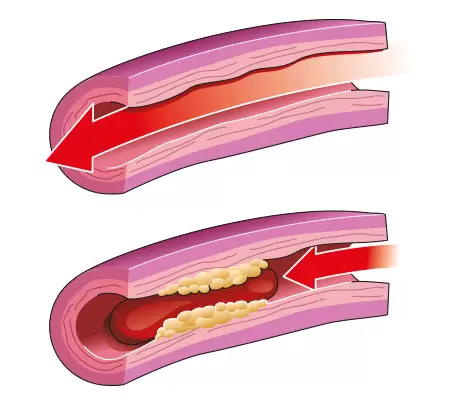
Introduction
The Heart
Your heart beats about 2.5 billion times over the average lifetime to pump millions of gallons of blood all over the body. However, with this never-ending workload, the performance of the heart may be deteriorating over time if one does not take good care of it. According to the latest data from the World Health Organization (WHO), the death rates in Malaysia of 2016 were increased by 4.1 percent compared to the year 2015 [1]. Out of the total numbers of deaths, Non-Communicable Diseases (NCDs) are estimated to account for 74% of all deaths [2]. On top of that, the mortality rate of cardiovascular diseases (CVD) had taken up 34% of the total deaths of NCD.
Cardiovascular Diseases
There are several heart diseases grouped under CVD; the deadliest two will be Coronary Heart Disease (CHD) and stroke in Malaysia [3]. CHD happens typically when the clot obstructs the flow of blood to the heart muscle and roots a heart attack. If it happens to the arteries in the brain, it will lead to a stroke. The arteries get narrowed often cause by the plaque formation in the inner wall, which reduces the blood flow (Figure 1). The plaque formed may be caused by high unfavorable fat content (bad cholesterol and triglycerides) in blood. Thus, maintain a healthy level of lipid profile in our heart may reduce the risk of getting CVD. American Heart Association has also been suggesting the public on omega-3 fatty acid intake at maintaining and preventing CVD.

Figure 1: Plaque formation will narrow the blood flow
| Population | Recommendation |
| General heart health | ≥ 2 servings of fatty fish weekly |
| Patients with documented CHD | ~1,000mg EPA+DHA daily |
| Patients needing triglyceride lowering | ~2,000-4,000mg EPA+DHA daily |
Table 1: Recommendation from the American Heart Association on Omega- 3 Fatty acid intake
Omega-3 Fatty Acid
Nevertheless, the consumption of fatty fish is easier said than done in Malaysia, as it might be a financial burden for some families. Moreover, some may not consume fish regularly due to the fishy taste or the fishbone. Hence, supplementation is one of the alternatives to load up the omega-3 intake. BiO-LiFE MaxX Fish Oil contains double the amount of active ingredient (EPA + DHA) in one capsule compared to standard strength fish oil. This convenient dosage helps you to achieve Omega-3 requirement easily and have better compliance. If you are not a huge fan of the fishy taste, fret not, BiO-LiFE MaxX Fish Oil has improved the palatability with better taste and color. In short, BiO-LiFE MaxX Fish Oil provides the maximum benefits of omega-3 fatty acids with an optimum combination of cost and quality.
Stay healthy & keep your heart beating!
References
- Department of Statistics Malaysia Official Portal [Internet]. Dosm.gov.my. 2019 [cited 9 May 2019]. Available from:https://www.dosm.gov.my/v1/index.php?r=column/cthemeByCat&cat=120&bul_id= RUZ5REwve U1ra1hGL21JWVlPRmU2Zz09 menu_id=amVoWU54UTl0a21NW mdhMjFMMWcyZz09
- MALAYSIA [Internet]. United Nations: World Health Organization – Noncommunicable Diseases (NCD) Country Profiles, 2018.; 2019 [cited 9 May 2019]. Available from: https://www.who.int/nmh/countries/2018/
mys_en.pdf?ua=1 - Types of cardiovascular disease [Internet]. United Nations: World Health Organization – Noncommunicable Diseases; [cited 9 May 2019]. Available from: https://www.who.int/cardiovascular_diseases
/en/cvd_atlas_01_types.pdf - Kris-Etherton PM, Harris WS, Appel LJ. Fish consumption, fish oil, omega-3 fatty acids, and cardiovascular disease. circulation. 2002 Nov 19;106(21):2747-57.



